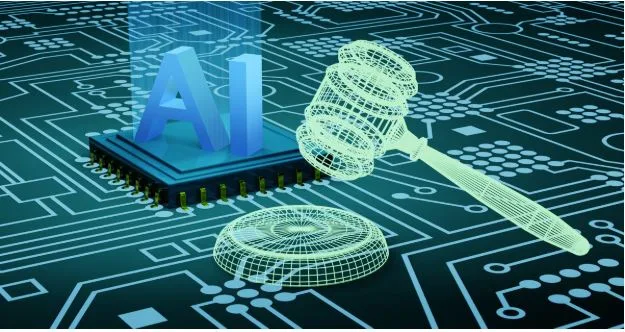The Battle for AI Ethics: Can Machines Have Morals?
Artificial intelligence has evolved from being a futuristic concept to an everyday reality. From smart assistants and automated cars to medical diagnostics and military drones — AI now influences nearly every aspect of modern life. But as machines become more intelligent, a critical question emerges: Can we trust AI to make moral decisions?
The rise of AI ethics: the study of how algorithms should behave — is now one of the most pressing challenges of the 21st century. Governments, corporations, and researchers are racing to ensure that as AI grows more capable, it remains aligned with human values.
The Moral Dilemma of Artificial Intelligence
Imagine a self-driving car facing an unavoidable accident. Should it prioritize the passenger’s life or the pedestrian’s? Or picture an AI healthcare system deciding who receives a scarce life-saving treatment.
These are not science fiction scenarios — they’re real ethical puzzles engineers face today. AI systems make decisions based on data, logic, and probability — not empathy or compassion. That’s where the problem lies.
Human morality is shaped by experience, culture, and emotion, while AI operates purely on numbers. The challenge isn’t just programming intelligence — it’s programming conscience.
The Bias Problem in AI
One of the biggest ethical challenges with AI is bias. Because AI systems learn from existing data, they can unintentionally absorb the prejudices present in society.
For example:
- Facial recognition tools have shown higher error rates for people of color.
- Hiring algorithms have discriminated against women due to biased historical data.
- Predictive policing systems have unfairly targeted specific communities.
These aren’t isolated cases. They highlight the urgent need for ethical oversight and fairness testing in AI development.
As AI continues to influence who gets jobs, loans, or justice, ensuring its decisions are transparent and unbiased becomes a matter of human rights.
Regulating AI Ethics: A Global Effort
Different countries are taking different approaches to AI regulation.
- The European Union has introduced the AI Act, a first-of-its-kind law that classifies AI systems by risk level and demands strict transparency for high-risk applications like healthcare and law enforcement.
- The United States is adopting a more flexible, innovation-friendly approach, encouraging self-regulation and industry standards.
- China, meanwhile, is focusing on AI governance through centralized control, emphasizing security and state oversight.
Tech companies are also forming AI ethics boards and releasing guidelines, but critics argue these measures are often more symbolic than effective. Without consistent international standards, ethical enforcement remains fragmented.
Can AI Learn Morality?
Researchers are now exploring ways to embed moral reasoning into AI.
Projects like OpenAI’s alignment research, DeepMind’s ethics unit, and MIT’s Moral Machine are testing how AI can evaluate human-like ethical trade-offs.
Some propose training AI on “moral datasets” — collections of human judgments on ethical questions — so it can mimic collective moral reasoning. Others believe AI should never make moral decisions autonomously at all. Instead, it should support human judgment, not replace it.
Still, there’s growing consensus that ethical AI must be explainable. When an algorithm makes a decision — whether approving a loan or diagnosing a disease — humans must understand why. Transparency and accountability are essential to trust.
The Role of Companies and Developers
Building ethical AI isn’t just a technical issue; it’s a corporate responsibility.
Tech giants like Google, Microsoft, and IBM have pledged to prioritize fairness and transparency in their AI products. But real-world implementation often lags behind promises.
Experts suggest three key principles for ethical AI development:
- Fairness: Avoid discrimination in algorithms and training data.
- Transparency: Make AI decision-making processes understandable.
- Accountability: Ensure there’s always a human responsible for the outcome.
When companies follow these principles, AI becomes a force for good — not a threat to humanity.
The Future of AI Ethics
As artificial intelligence grows more powerful, its impact will extend far beyond technology — influencing law, culture, and even philosophy. The next decade will define whether AI becomes a tool of empowerment or manipulation.
It’s clear that machines alone can’t have morals, but the humans building them can. The key lies in combining innovation with integrity — designing systems that reflect the best of humanity, not its flaws.
The conversation about AI ethics is only beginning, and it will shape the future of civilization.
To stay informed about the evolving debate on artificial intelligence, technology policy, and innovation, visit Forbes US, your trusted destination for the latest in global tech and ethical insights.




